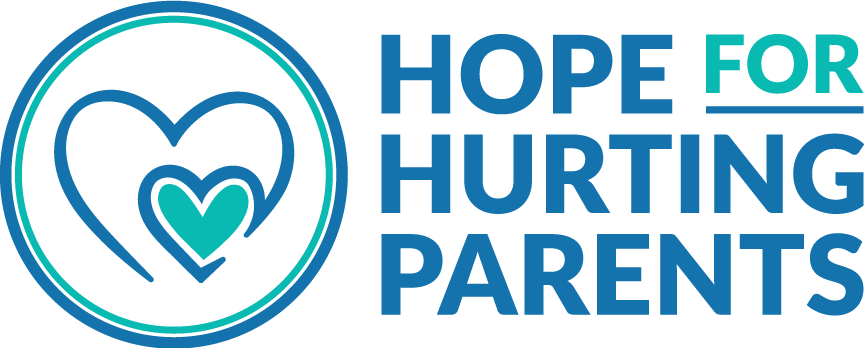
photo cred. wikimedia commons
When we began our journey of parenting a troubled teen, my wife and I were clueless. An endless amount of information was available on how to raise great kids, but I found little help when it came to dealing with hard issues like the ones we were facing. Addiction and mental illness were strange to me. I had never even heard of self-harm or cutting. Many of you are dealing with other hard issues.
While I don’t cherish my time spent on that difficult road, the lessons I learned have become treasures—similar to panning in a river for gold. I found something of great value.
Four nuggets I gleaned during my years of difficult parenting:
1. Prioritize Relationships

photo cred.pixabay
In the midst of the struggles with our daughter, we had to take a serious look at the relational dynamics involved. We were in a battle with our adult daughter and needed to be clear that there would never be a time when she would take a higher priority than our marriage.
We were a married couple before our three children came along. If things went as we hoped, our daughter would be on her own one day and we would return to the way our lives were before children, the way God intended.
Not all hurting parents have a spouse to share these trials with. Alone, with no support in the home to help bear the load, is extra hard. My wife and I are together, so I can’t speak personally to this situation. But imagine what your life would be like if your grown child was functional and on their own? Perhaps you can make that goal a priority?
Other key relationships impacted by a rebellious teen or adult child are the other children in the family—their brothers and sisters. We didn’t want our son and other daughter to be negatively affected by the turmoil their sister was causing. We also didn’t want them to think too badly about her. Therefore, we explained the situation to them by using an analogy they could identify with: a broken bone. One summer, both of our girls broke an arm. They could relate well to our analogy.
We explained to our children that broken bones need more care and attention than the rest of the body. In time, bones mend. Things wouldn’t always be the way they were, but giving more time and attention during a season of healing, didn’t mean other parts of the body were any less important or valuable. Likewise, while their sister was getting more attention than they were, we assured them it was temporary.
We loved them just as much as we loved their sister. A lot of effort was made to be sure we didn’t miss their significant events. Later on, we planned a time to do something special—our younger daughter chose fly-fishing in Colorado.
2. Triage the Calendar
Being the parent of a rebellious, troubled child is hard work. Great amounts of time, attention, energy, and

photo cred. wikimedia
resources are demanded: mental, emotional, and financial. Exhausted, we’re no good to anyone for anything. We’re spent. Work performance suffers and friends wonder what’s happened to us.
We need to triage our calendar, like an EMT assesses a health crisis. After we took a closer look at our calendars and commitments, we decided to scale back. What could we remove? What could be drastically reduced? What could we step away from, at least temporarily?
Difficult Decisions
Anything nonessential to our livelihood demanded serious reconsideration. Our work couldn’t change, but there were volunteer positions we could ask someone else to pick up for a little while, like the small group we led at church. We decided to take a leave of absence and cancel numerous social commitments. Events were rescheduled for a better time when we had more energy to engage.
The other side of triaging our calendar was to choose activities that would regenerate and refresh us. Sleep was vital to our well-being. Plenty of times we didn’t get much, either because we were dealing with an emergency or because we were lying awake worried. Sleep deprived, we couldn’t think clearly or make good decisions. More susceptible to accidents and brain fog, naps became essential.
Some research helped us find two ways to fall asleep better and fend off worry—as much as possible: at bedtime, listen to relaxing music and scripture, and meditate on either the twenty-third Psalm or The Lord’s Prayer.
A few more ways we found refreshment:

Bok Tower, Lake Wales, Florida
- Walks along a scenic path to appreciate nature; helps slow down racing thoughts.
- Extended time alone with God to pray and meditate on his Word. This became a priority. We found places to go: a park, a peaceful walking area, a room in our church, etc. This became a time we looked forward to at least once a quarter, more often when needed.
- Work these into your calendar. You’ll be glad you did.
Dear God, please help me prioritize my relationships and triage my calendar so that I can endure this hard journey in a better way. By faith, I’ll walk the path you’ve laid before me. I look to you. Amen.
How have you prioritized your relationships or triaged your calendar? If you have and it helped, please share in comments about your experience to help someone else
Coming next week – Part 2 on Nov. 13th. The author of this series is Tom Yohe.
**If you feel alone and want ongoing encouragement, click here to sign up for our free encouraging email messages. Dena shares scriptures, prayers, and truths that help her stay strong and trust God more on a difficult parenting journey.
**If you haven’t already read it, you might like my wife’s book, You Are Not Alone, endorsed by Dr. James Dobson (Family Talk), Family Life Ministries, and Focus on the Family. It’s available through our website or wherever fine books are sold, including ebook format for Nook and Kindle.

Thanks for the great reminders Tom! In the midst of our really challenging days I have made sure to keep up with my bible studies. One, because I needed to keep God’s truths in front of me when I was buried in the mess, and two, because the girlfriends I did the study with held me up. And not only me, but they also loved on and held up my daughter, and that was huge. Listening to Christian music and my favorite Christian speakers on You Tube also keep my eyes and mind on God and not our circumstances too. And of course yours and Dena’s ministry have been a huge part of the good things I have leaned into! ?
Thanks, Beth, for sharing some of the things that have helped you! We hope it helps someone else!
Thank you. I wish I had known of your resource many years ago, but I am looking forward to participating with other Christian parents in trying to heal my heart. I have two young adult children with mental health issues. My daughter has been on meds since she was seven and is under very good medical care. She is stable, but my son is not. Because my daughter’s needs could not be overlooked, I’m afraid my son’s less obvious personality red flags were discounted and rationalized. Now he is married, has a drinking problem and has become verbally abusive to his wife. I saw these patterns starting early with the way he treated his sister and a!though is defended her, I was not able to stop his verbal attacks. I feel so guilty. Alcoholism runs on both sides of the family. Personality disorders run on my husband’s side. How I wish I could turn back the clock and get a do-over.
I’m so sorry for what you have gone through with your children. We all wish we could get a do-over, or that we knew more than we did, or were smarter, etc. But we did the best we could. Please forgive yourself and know that your son is on his own journey. May he find the healing and seek out the help he needs. We pray God will heal your heart, too, as you bring your hurts and disappointments to him. He understands and offers grace.
Tom and Dena